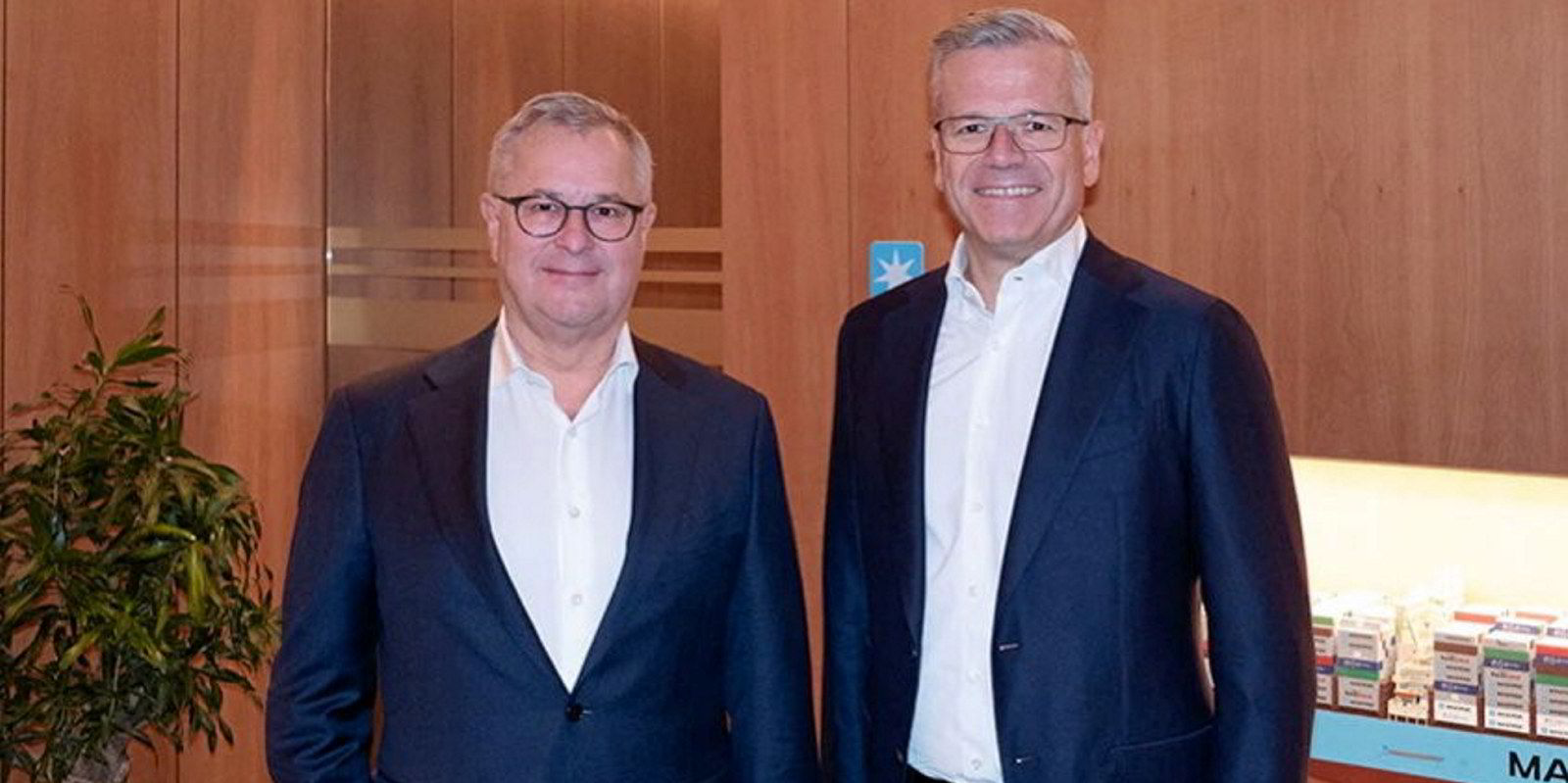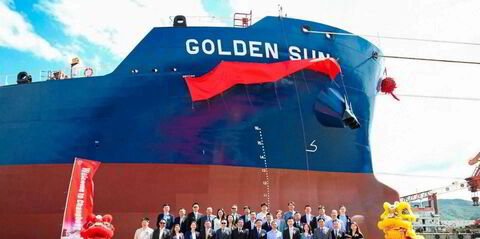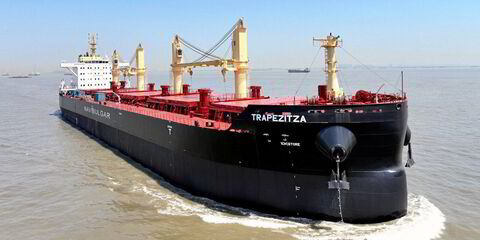AP Moller-Maersk chief executive Vincent Clerc is implementing a standalone strategy at a tricky time for Danish liner giant with weaker container markets set to erode into the company’s profits this year.
But the new boss of the Copenhagen-based company argues now had to be the time to start disbanding the 2M alliance with MSC Mediterranean Shipping Company.
He argues his company cannot achieve its strategic goals within the traditional liner shipping alliance structure.
Therefore, Maersk needs to go it alone if it is to succeed in integrating its shipping, logistics and terminals business, the manager believes.
In Clerc’s view, this will help it break free from the commoditised nature of the liner shipping industry.
That integrator strategy has been described as “high risk and full of pitfalls” by UK analyst Drewry.
But the initial benefits of being a member of the 2M were increasingly outweighed by the disadvantages as the two companies pursued divergent strategic goals, Clerc told an earnings call today.
“When we created 2M in 2015, there was a significant value in pooling networks, as we had to phase in a new generation of 20,000-teu-plus tonnage.
And needed flexibility on capacity management,” he said.
“Since then we have grown our volume significantly, gained scale and got better at capacity management.
“So much, in fact, that the synergies from the pooling have decreased significantly.
“At the same time, the ‘dys-synergies’ from having divergent strategic goals have increased.”
The 2M remains “a unique alliance” because it paired the two largest container shipping carriers, he said.
Both Maersk and MSC had reached a size where they could standalone without partners if they wanted to, unlike any other of the top ten carriers.
“I don’t think any of the other carriers today would be able to have comprehensiveness of coverage that is required to be competitive or the cost base to stand alone.”
Four networks
The scheduled dissolution of 2M has led some to speculate about the prospect of a break-up of the existing alliances, but Clerc doubts that will happen.

“I don’t expect this musical chairs that has been talked about with everybody trying to find new partners,” he said.
Instead, the alliance landscape was more likely to enlarge to four liner networks rather than three at present — 2M, Ocean Alliance and THE Alliance.
“It’s hard to see how the alliances would make a significant change given that both MSC and Maersk intend to have a mostly standalone network,” he said.
Existing agreements between alliance members were also likely to remain stable through to 2027.
Clerc believes that an independent Maersk will be better positioned to integrate its Ocean division with Maersk’s other divisions as it seeks to create an end-to-end logistics business.
Clerc’s strategy is deemed high risk at a time when the container markets are changing.
The company’s profits already heading south on the back of falling spot rates and volumes. Expectations are that long term contracts will follow down the spot market in the second half of the year
The downturn towards the end of the year saw more than $1bn shaved from profits towards the end of the year as container growth contracted.
That is expected to worsen and prove a test to the new business model that Maersk is trying to forge for itself.
“Following our strategy we are convinced that this is the time to move beyond the traditional ocean service model.
“To do this we need to regain and retain a strong level of control of the service levels we provide,” said Clerc.
“That cannot be achieved in an alliance structure.”
Clerc said it will be “business as usual” for the 2M alliance over the next two years as the notice period is served.
But the company has no illusions that the economic environment will prove challenging.
The company Maersk expects to grow in line with the global ocean container market.
That could mean a reduction in fleet size with the company forecasting growth of between -2.5% and +0.5% this year.
Danish liner giant AP Moller-Maersk celebrated the best financial result in its history with a record $29.7bn profit in 2022.
But the downturn in container shipping markets is already trimming billions from the bottom line as container growth contracts.
The Copenhagen-based company saw more than $1bn shaved from profits towards the end of the year.
Profits for the fourth quarter of 2022 dropped to $5bn, down from $6.1bn in the previous year.
Revenues for the quarter were down by $686m to $17.8bn, mainly due to a decrease in Ocean of $1.3bn. Ebitda decreased by $1.5bn to $6.5bn and Ebit was down by $1.5bn to $5.1bn.
Maersk attributed the result to lower volumes caused by weakening customer demand, easing of congestions and operational bottlenecks.
Freight rates from Asia to Europe and the transpacific were also down from their peak levels reached by mid-2022, while costs rose on its container handling network.
Despite the expected normalisation of the market, 2022 was still an “exceptionally strong year”.





